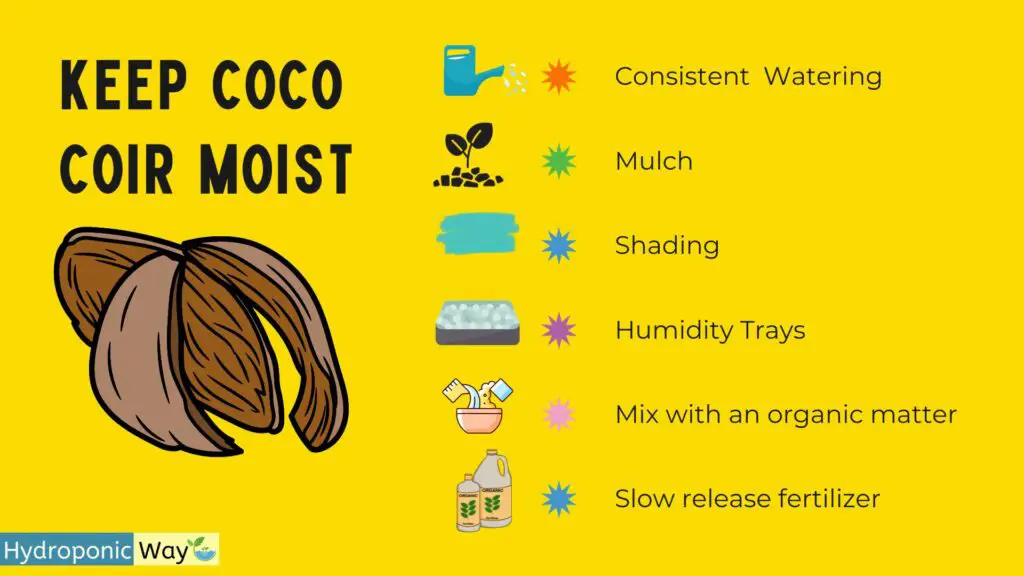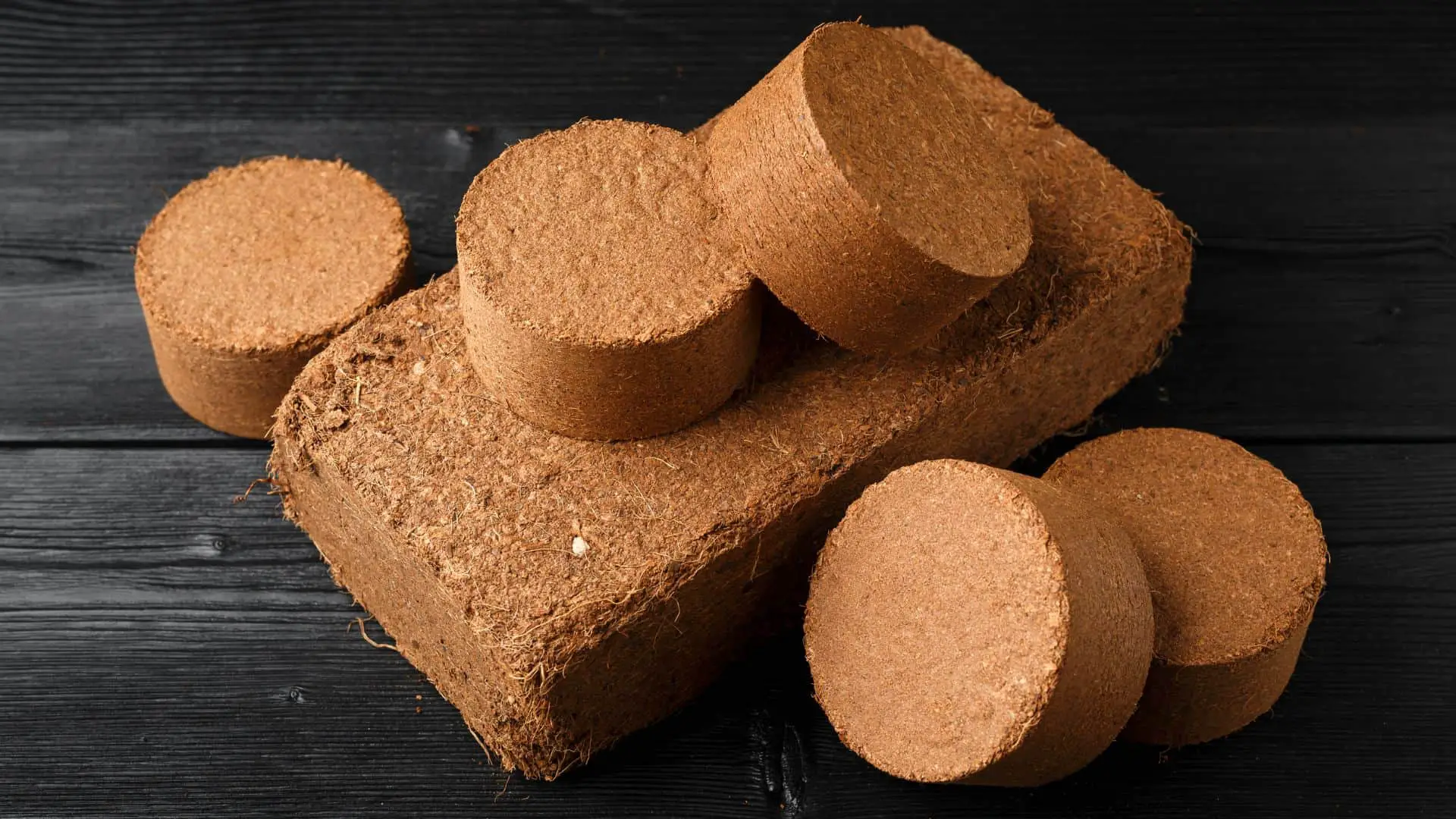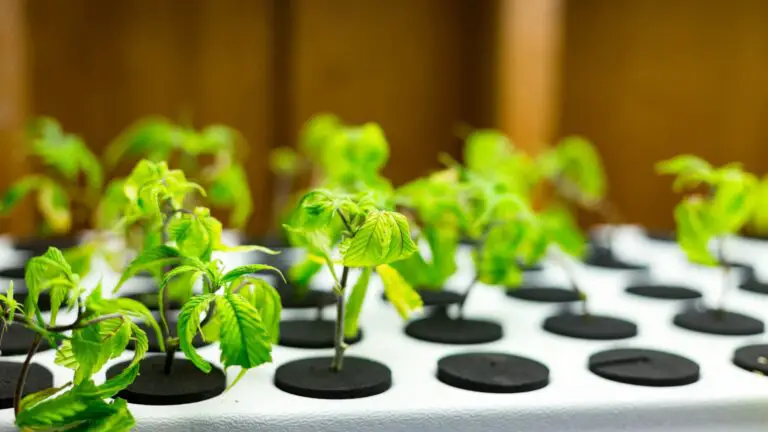How to Keep Coco Coir Moist in Hot Weather
If you’re in the world of hydroponic farming or simply a home gardener who’s recently taken a liking to coco coir, you’d know that it’s an outstanding choice for plant growth. Originally derived from coconut husks, this brown and fibrous material has taken the gardening world by storm, particularly due to its phenomenal water retention properties.
But here’s the kicker – coco coir, while being a hydration champion, can sometimes give up its moisture too quickly under the blazing sun.
Don’t fret though. Here’s a comprehensive guide on how to keep coco coir moist, especially when the temperatures start rising.
The Essentials
- Deep and Consistent Watering
Remember, coco coir is like a sponge. It’s capable of holding onto a good amount of water. So, ensure you’re watering your plants enough for water to seep out from those drainage holes. It’s all about letting your plants drink up! - Mulch, Mulch, and More Mulch
Think of mulch as a protective blanket for your coco coir. It curtails evaporation, thus keeping your growing medium pleasantly moist. Opt for bark chips, straw, or even compost – they’re all great options. - Seek the Shade
The logic is straightforward – less direct sunlight means less evaporation. Shield your plants during peak sunlight hours to ensure they’re not losing more water than they should. - Humidity Trays to the Rescue
This is especially for those smaller plants or those kept indoors. A humidity tray, essentially a dish with water and pebbles, can escalate the surrounding humidity levels, ensuring that your plant remains hydrated.
Bonus Tips to Ace Coco Coir Moisture Maintenance
- Introduce Organic Matter
Enhancing your coco coir with perlite or peat moss can significantly bolster its water retention capability. It’s like giving your coco coir a hydration booster shot! - Slow-Release Fertilizers
Not only do these provide a steady nutrient supply, but they also lend a hand in moisture retention.
Here are a few to consider:
- Osmocote Smart-Release Plant Food – A household name in the gardening world, Osmocote’s granular fertilizer is coated in a semi-permeable resin. This design ensures nutrients are released slowly, over an extended period, depending on soil temperature. Its formulation helps in maintaining consistent moisture levels in your coco coir.
Incase if you want to buy CLICK HERE - Jobe’s Organics Granular Fertilizer – This fertilizer, laden with beneficial microorganisms, ensures soil health and also provides a steady release of nutrients. Its organic composition assists in enhancing the water-holding capacity of coco coir.
Incase if you want to buy CLICK HERE - Miracle-Gro Shake ‘N Feed – Another stalwart in the gardening sector, this fertilizer not only nourishes plants but also strengthens them against diseases and pests. Its moisture-conserving formula ensures that your coco coir retains water efficiently.
Incase if you want to buy CLICK HERE - Milorganite Organic Nitrogen Fertilizer – A byproduct of wastewater treatment, this eco-friendly fertilizer is rich in iron and organic nitrogen. The organic matter in Milorganite helps in enhancing the moisture retention properties of coco coir.
Incase if you want to buy CLICK HERE - Epsoma Plant-Tone – An all-natural fertilizer, it is a harmonious blend of natural ingredients that nourish plants steadily. Its organic components enhance the coco coir’s capacity to hold onto water. Incase if you want to buy CLICK HERE
When integrating any of these slow-release fertilizers into your coco coir, it’s essential to remember two things:
- Always follow the manufacturer’s recommendations. Over-fertilizing can lead to nutrient burn, which can adversely affect your plants.
- Periodically check the pH level of your coco coir. This ensures that the nutrients are effectively available for plant uptake. Ideal pH levels for coco coir typically range between 5.5 to 6.5.
- Time Your Watering Right: The sun is kindest early in the morning and late in the evening. Water your plants during these times to minimize evaporation losses.

Common Mistakes to Dodge
- Overwatering
Yes, coco coir loves water. But, drench it too frequently without allowing for proper drainage, and you might be inviting root rot. Always ensure that your coir has a chance to dry out slightly between watering sessions. - Ignoring the pH Levels
Coco coir naturally tends to be more alkaline. Neglecting to monitor and adjust the pH can prevent plants from absorbing nutrients, even if you water them adequately. Aim for a pH level between 5.5 to 6.5 for optimal plant growth. - Falling for the ‘More Mulch is Better’ Myth
Mulch is fantastic, but piling it on too thickly can actually prevent water from reaching the coco coir. A 2-3 inch layer is generally optimal. - Using Poor Quality Coco Coir
All coco coir is not made equal. Some cheaper or poorly processed variants might contain excessive salt, which can damage your plants and disrupt water retention. Always opt for high-quality, rinsed, and buffered coco coir. - Being Inconsistent
Plants, like all living beings, thrive on consistency. Erratic watering schedules can stress them out. If you’re watering deep, ensure you’re consistent with your timing and volume.
In Conclusion
In conclusion, while coco coir is a stellar medium for plant growth, it does require a tad bit of attention, especially when the thermometer goes haywire. With the above-mentioned strategies, you’re all set to ensure that your coco coir remains as moist and as welcoming for your plants as you’d like it to be.
Thank you for reading!



